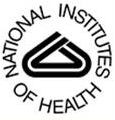
PEER Health Program Call-for-Proposals to Improve Child Health
For Immediate Release
WASHINGTON, D.C. – The U.S. Agency on International Development (USAID) and the National Institutes of Health (NIH) have jointly announced a new grant program called Partnerships for Enhanced Engagement in Research (PEER) Health to help end preventable child deaths in developing countries. The announcement follows on the heels of the Child Survival: Call to Action held June 2012, and extends the already successful PEER Science program which originally launched in 2011 to the health sector. The purpose of the request for applications is to focus research efforts on the “last mile of treatment” in child health and underscores U.S. government’s commitment to end preventable child deaths.
Each award will provide up to $450,000 over three years to support collaborations that address research-to-practice barriers, while building professional capacity and more closely linking USAID missions with local health and research institutions. The number of awards is subject to the availability of funds.
In addition to accelerating the reduction of under-five child mortality rates, the USAID Indonesia mission is seeking to support awards to Indonesian scientists to engage in implementation research in neonatal survival, tuberculosis, and emerging infectious diseases.
The program is open to applicants from the 24 low-income countries which account for 80 percent of the under-five child deaths or low-income countries which have a Global Health Initiative (GHI) strategy in place. Proposals may be submitted from an additional nine lower- to middle-income countries if matching funds are secured from within the country. Developing country researchers must have an NIH-funded research partner to be eligible, and the projects must align with country health priorities and demonstrate scientific merit. Awardees will be encouraged to work closely with USAID mission staff for the duration of their project.
The PEER Health Child Survival program is supported by USAID’s new Center for Accelerating Innovation and Impact within the Global Health Bureau, and the Office of Science & Technology in the Policy, Planning, and Learning Bureau. The National Institute of Child Health and Human Development (NICHD) at NIH will support the review of proposals. Fogarty International Center at NIH and NICHD staff consulted with USAID to formulate the program.
Pre-proposals are due August 31, 2012 for applications from all countries (except Indonesia) to the National Academies, which will manage the program. For application details, visit www.nationalacademies.org/peerhealth.
Related Press Releases
- 10,000 Community Health Volunteers Receive Equipment from USAID’s Community Capacity for Health Program
- Afghanistan Ministry of Public Health Launches First Data Warehouse for the Health Sector with help from USAID
- USAID and the National Center or Healthy Lifestyles Promotion Conduct Training for Journalists on Tuberculosis Reporting







Comment
Make a general inquiry or suggest an improvement.